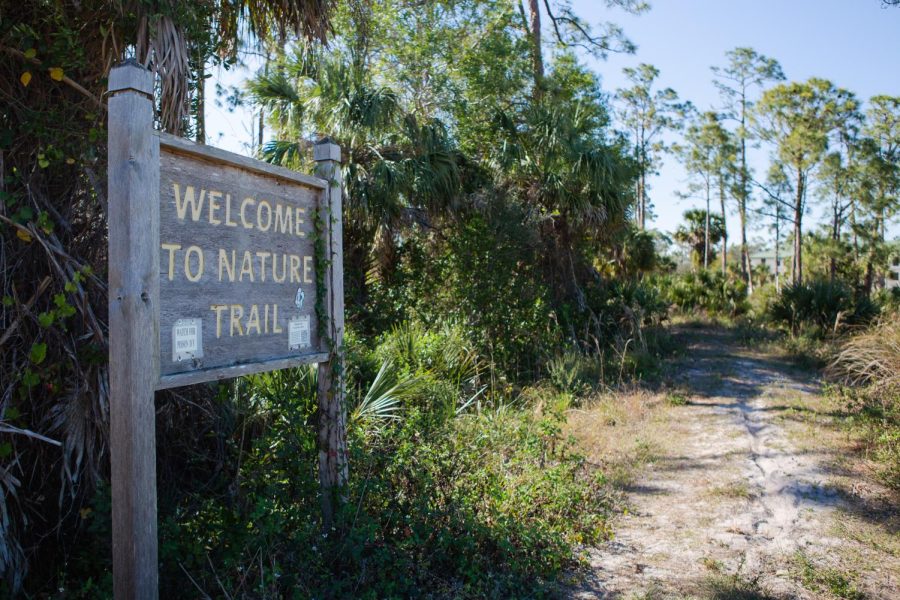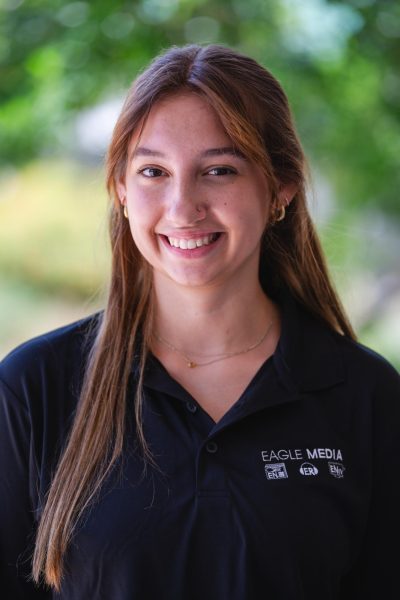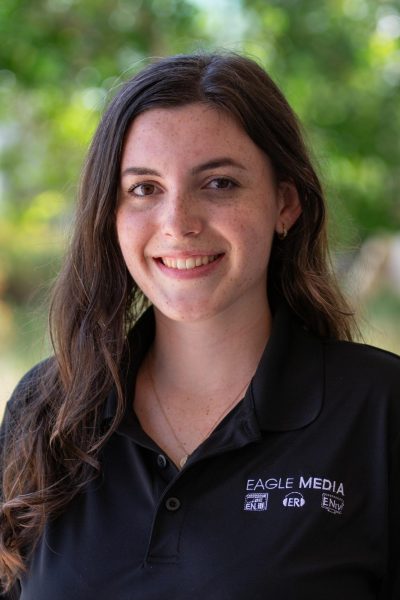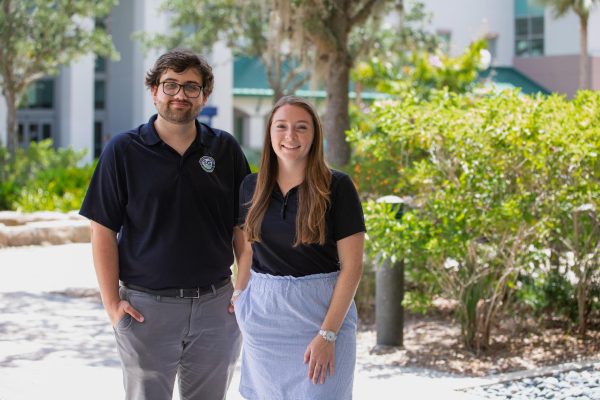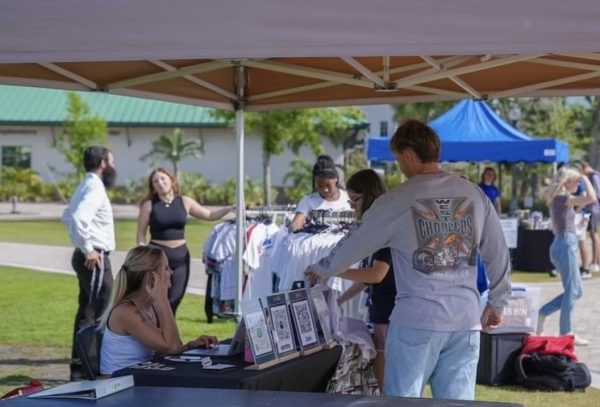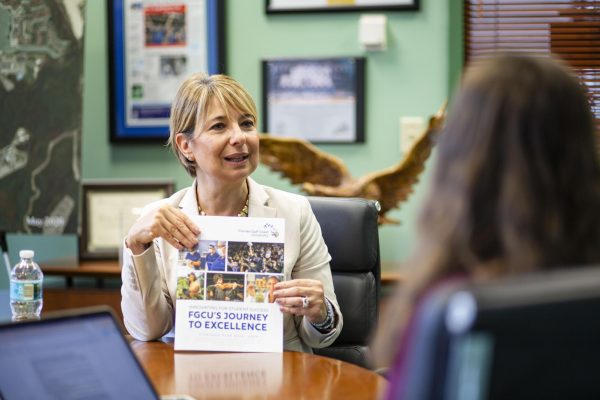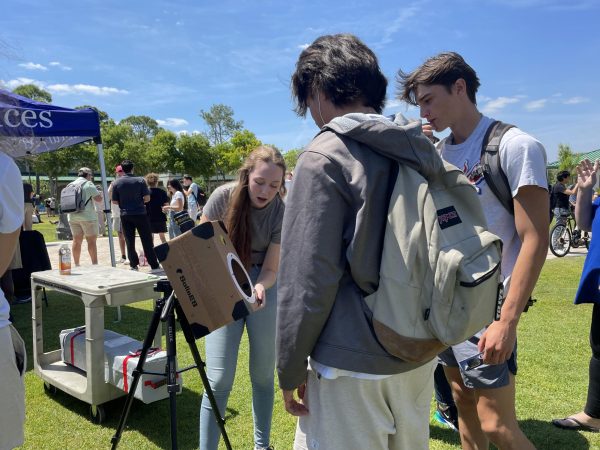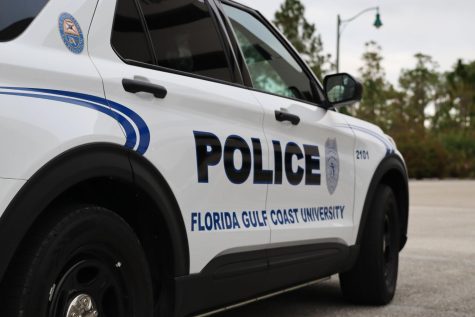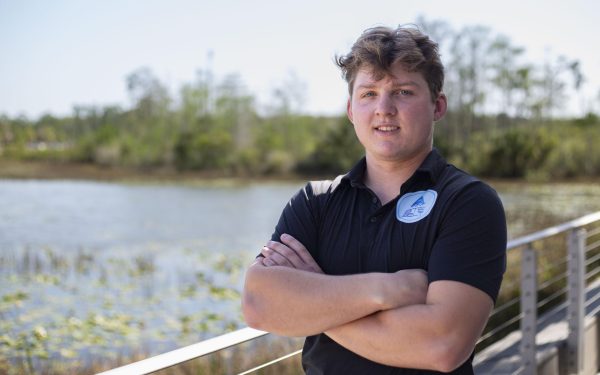Reforms to FGCU’s Sustainable Identity is Ongoing
Nature trail entrance across from North Lake Village.
March 13, 2023
Updated to reflect a correct attribution for a Buxton’s quote and to clarify context on March 23 3:48 p.m.
The definition of sustainability at FGCU might be shifting. Throughout the institution’s 25 years, sustainability has been at the center of its mission, but with a growing definition of sustainability, the university is being called to reform its efforts.
When the university was founded, it was built on environmentally sensitive land. There was pushback from the environmental community about the presence of a university on this land. FGCU pledged to maintain the environment, leading the community to embrace the university. University Colloquium and a promise to only build on half the land was implemented.
University Colloquium is a course that all students are required to take before graduation. According to the university website, “University Colloquium introduces students to the complexities of developing the sustainable societal patterns each will face as they launch their careers.”
Rory “Cush” Cushen is an environmental study major, a campus naturalist at FGCU, and the heart behind FGCWho. Cushen started to bring awareness with his campaign, which challenges FGCU’s identity when it comes to sustainability.
“I’m looking back at my time, and I see FGCU not doing enough when it comes to sustainability,” Cushen said. “FGCU is not the sustainable leader that we say we are. We have damaged our nature trails. We have invasive species on campus.”
Cushen believes FGCU needs to redefine what sustainability means and how it upholds these standards. He believes the university needs a sustainable president and reform of University Colloquium, suggesting it be placed at the end of the student’s college experience.
“When it comes to every student’s sense of identity, I just don’t think it’s there,” Cushen said. “It was sustainability that’s fallen to the wayside through environmental negligence.”
Brenda Thomas, the director of FGCU’s Colloquium program, acknowledges the global definition of sustainability has changed. It is now about the planet, the people and overall prosperity. FGCU has kept its focus on environmental sustainability.
“It was all about environmental sustainability,” Thomas said. “I will say to the best of our knowledge, we are still the only university in the world with a graduation requirement related to sustainability. So it is unique to FGCU.”
Thomas believes FGCU’s stance on sustainability may be shifting. While the university would remain environmentally sustainable, the center of its mission would move toward “idea to impact.”
“25 years ago, Colloquium was an idea. It was a really cool and unique idea, and it still is cool and unique. But we really have not done a good job of showing the impact of that,” Thomas said.
This does not mean sustainability is being shed from FGCU’s identity.
FGCU’s Student Government Director of Sustainability Dayton Buxton believes the university may have fallen behind in terms of maintaining a sustainable status.
“I think there may have been a shift away from those physical or tangible elements of sustainability like the solar field or LEED-certified buildings, but that does not mean sustainability has completely fallen to the wayside. Instead, it now largely encompasses research, conservation, stewardship, and other ambitions we may not see as often,” Buxton said.
However, Buxton shares that the Association for the Advancement of Sustainability in Higher Education’s Sustainable Campus Index ranked FGCU fourth in the nation for sustainability in curriculum and tied first for research this past year.
“I feel strongly that sustainability still remains an integral piece of FGCU’s identity,” Buxton said. “We have a strong opportunity to refocus and zero in on what makes us unique and reignite that identity through highlighting the initiatives we already have in place or implementing some new ones. Personally, I think this inflection point in our history is the optimal time to put students’ ideas and ingenuity right at the center.”
In comparison to other universities, FGCU could be falling behind in sustainable efforts. Colorado State University has incorporated sustainability, not just in its curriculum, but in its operations and financing.
“FGCU has been able to say, ‘We’ve got Colloquium, we’ve got this thing, and it’s fabulous.’ And we are a sustainable university while other universities have long since surpassed us,” Thomas said.
There are conversations underway about removing the Colloquium graduation requirement, so the course itself is likely to stay, but it may become an elective.
“Those conversations are certainly happening, and I do not know what the outcome is. I would not even want to guess what the outcome will be,” Thomas said. “I think this is the moment that FGCU, as a community itself, needs to redefine what sustainability means to us.”
































